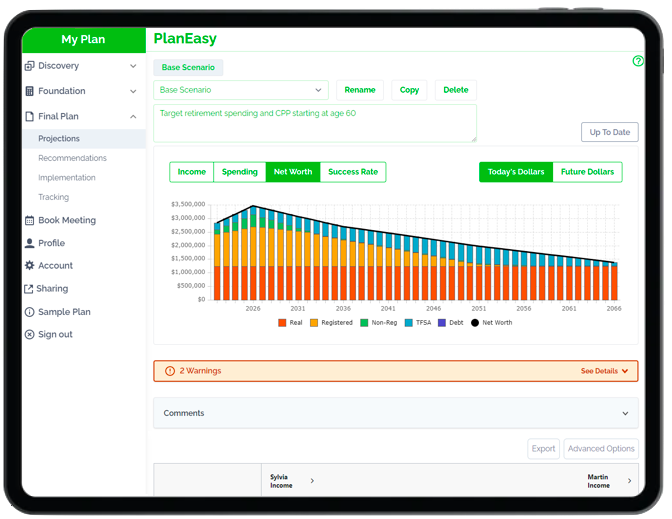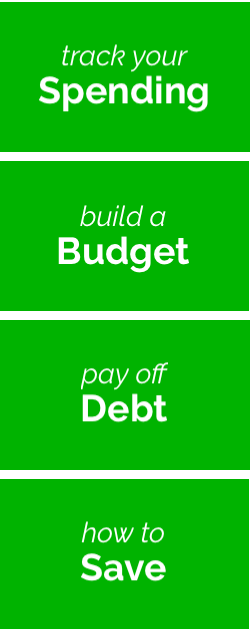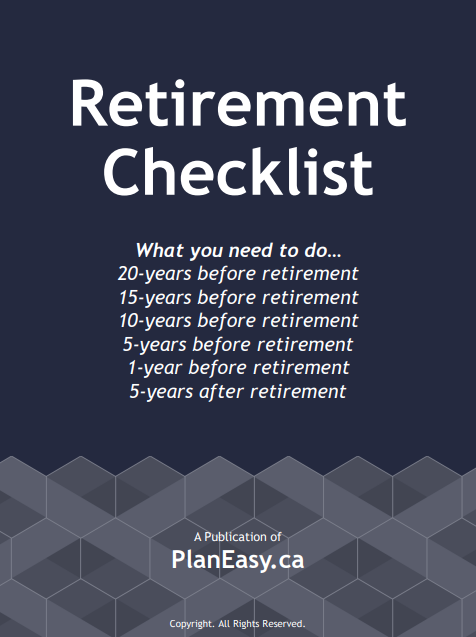RRSP Deadline: Should You Make An RRSP Contribution This Year?
The RRSP deadline is quickly approaching on March 1st, and you should get ready for advertisements selling you all sorts of RRSP products over the next few weeks. But despite what the advertisements suggest, should you actually make an RRSP contribution this year? Maybe, but maybe not.
In this blog post we’re going to highlight 5 reasons why you SHOULD NOT make an RRSP contribution this year.
As we build financial plans with clients, we sometimes come across situations where RRSP contributions were made to the detriment of the client. The client was in one or more of the situations below, but they were still advised to make RRSP contributions, or they were advised to split contributions between RRSP and TFSA, or sometimes they were not given any tax planning or government benefit advice at all.
Depending on the situation, this has cost a number of clients $10,000’s in extra income tax or reduced government benefits.
So, as the RRSP deadline approaches, watch out for these five situations where RRSP contributions may not be the best option, and always seek the advice of an unbiased advice-only financial planner to create a thorough income tax and government benefit strategy before making $1,000’s in RRSP contributions.
Situation #1: You Expect Your Income To Increase
One of the great things about an RRSP contribution is that is can be deducted against your income. This deduction will help lower your taxable income and decrease the amount of income tax you have to pay.
This also means that an RRSP deduction is worth more when your income is high and when you’re in a high tax bracket.
If you expect your income will increase in the near future, and that increase puts you into a higher tax bracket, then it may be better to focus on TFSA contributions first and save your RRSP contribution room for the future when your income is higher.
Situation #2: You Expect To Start A Family Soon Or Have More Children
When you start (or expand) a family you also get access to new government benefits like the Canada Child Benefit (as well as numerous other government benefits). These benefits are often called “income tested benefits” because they are based on your taxable income (line 23600 on your tax return). As your income goes up… these benefits go down.
One of the great things about an RRSP contribution is that the deduction will lower your taxable income and boost your government benefits, especially for families.
If you’re starting a family soon, or if you’re expanding your family, then it may be best to focus on TFSA contributions for now and save your RRSP contribution room for when you’re eligible for additional government benefits.
Situation #3: You Expect To Receive Guaranteed Income Supplement (GIS) In Retirement
One of the most generous government benefits in Canada is the Guaranteed Income Supplement (GIS). This benefit is only available to people over the age of 65 who have also started their Old Age Security (OAS) benefit. GIS provides over $10,000 per year at a maximum but this amount is quickly reduced by clawback rates of 50% to 75%.
Withdrawing $1,000 from an RRSP/RRIF in retirement will cause GIS benefits to decline by $500 to $750, so RRSP/RRIFs are very bad if you receive GIS.
If you expect that you could be eligible for GIS benefits in retirement, and about 1 in 3 retirees are eligible, then you should NOT be making RRSP contributions and you should focus solely on your TFSA.
Situation #4: You’re Buying Your First Home In The Next Few Years
If you’re planning to purchase a home in the next 5-years then the RRSP Home Buyer Plan (HBP) is an attractive program. It allows you to pull $35,000 from an RRSP for a qualifying home purchase and then slowly pay that amount back over 15-years.
But there is another option available to first time home buyers starting in 2023. The First Home Savings Account (FHSA) allows a first-time home buyer to contribute $8,000 per year up to a $40,000 lifetime maximum. These FHSA contributions are tax deductible, the same as RRSP contributions, but when you withdraw from the FHSA for a qualifying home purchase there is no income tax and no requirement to pay it back.
If you only have enough to do one or the other, a first-time home buyer should not contribute to an RRSP but should contribute to a FHSA instead.
Blog post continues below...
Advice-Only Retirement Planning
Are you on the right track for retirement? Do you have a detailed decumulation plan in place? Do you know where you will draw from in retirement? Use the Adviice platform to generate your own AI driven retirement decumulation plan. Plan your final years of accumulation and decumulation. Reduce tax liability. Estimate "safe" vs "max" retirement spending. Calculate CPP, OAS, GIS, CCB etc. And much more!
Start your retirement plan for just $9 for 30-days!
You deserve financial peace of mind as you enter retirement. Start planning now!

Situation #5: You’re In A Low Tax Bracket
Lastly, you should not contribute to an RRSP if you are in a low tax bracket. One of the main benefits of an RRSP is that income tax is deferred until you withdraw. Ideally these withdrawals happen in retirement when your marginal tax rate is lower than it is today. But if you’re already in a low tax bracket today then this is no longer an advantage as your tax rate can’t get much lower.
If you’re in the lowest tax bracket (and assuming you’re not eligible for large amounts of child benefits as mentioned above), then it may be better to focus on TFSA contributions instead.
Should You Make An RRSP Contribution?
Should you make an RRSP contribution before the contribution deadline on March 1st? The answer could be NO.
If you find yourself in one of the situations above then it might be better to avoid RRSP contributions. Making the right decision could easily save $10,000’s in income tax and government benefit clawbacks.
If you’re unsure about what is the right strategy for your situation I would recommend working with an advice-only financial planner who can provide unbiased advice on a custom RRSP/TFSA strategy.
Join over 250,000 people reading PlanEasy.ca each year. New blog posts weekly!
Tax planning, benefit optimization, budgeting, family planning, retirement planning and more...
Join over 250,000 people reading PlanEasy.ca each year. New blog posts weekly!
Tax planning, benefit optimization, budgeting, family planning, retirement planning and more...








0 Comments